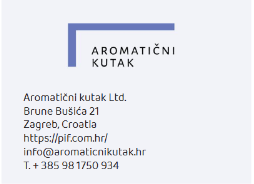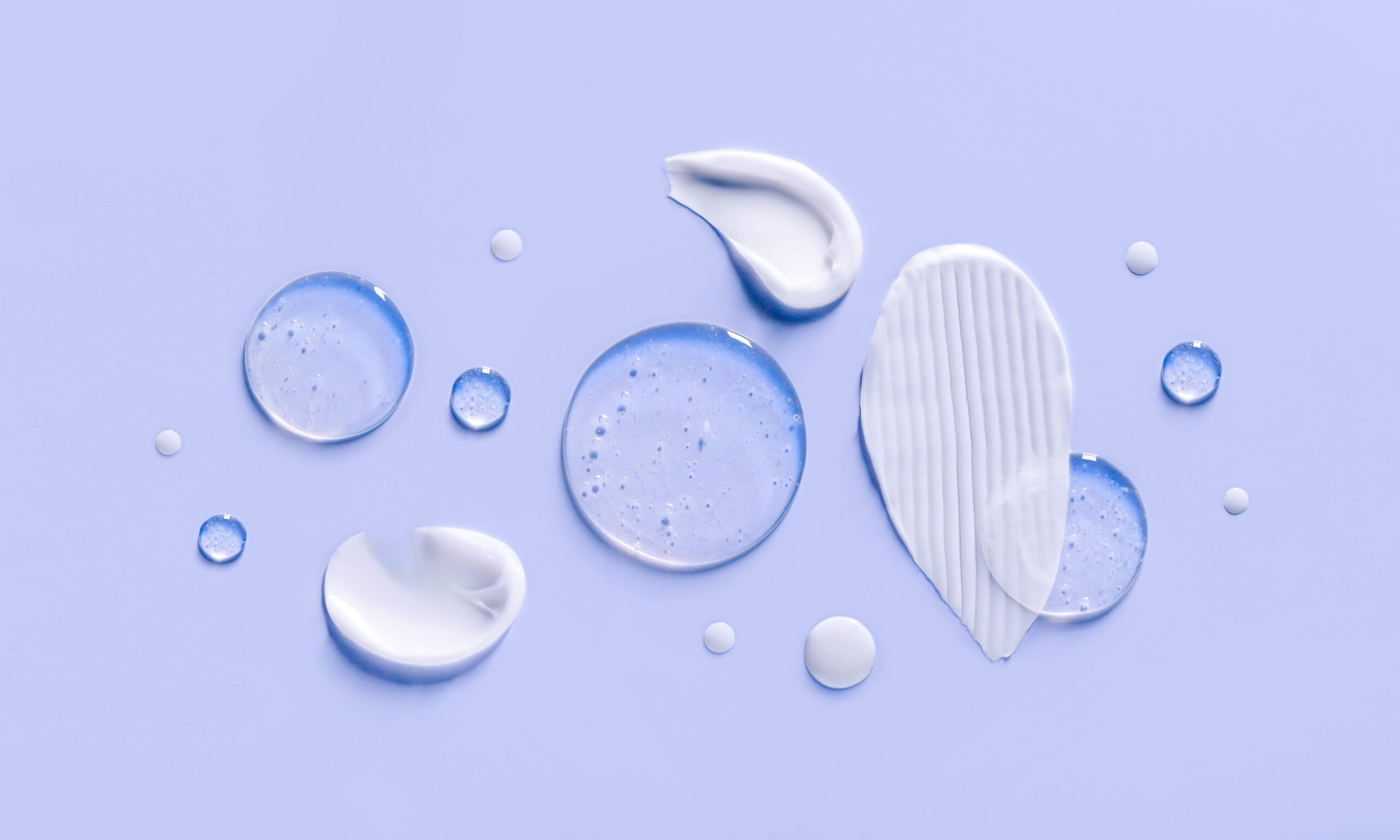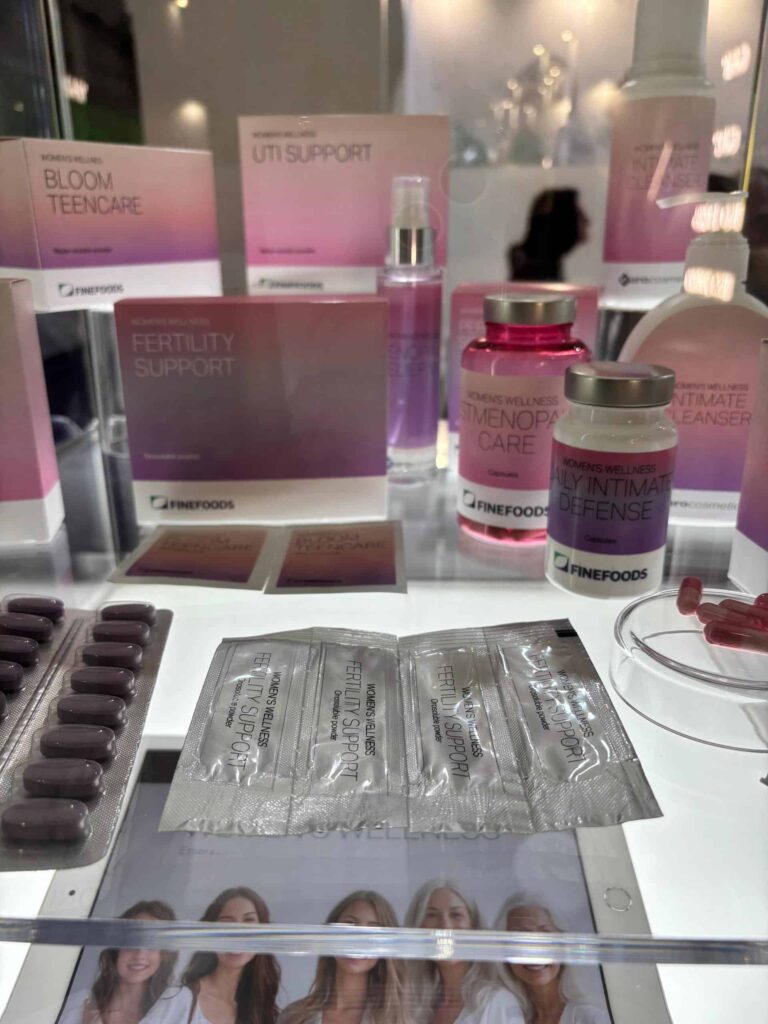Exosomes have emerged as a revolutionary component in cosmetic science due to their role in cell communication, regeneration, and anti-aging processes. These nanosized extracellular vesicles facilitate the transfer of bioactive molecules such as proteins, lipids, and RNAs, influencing skin cell function and repair mechanisms. Their primary function is intercellular communication, transferring molecular signals that regulate cellular behaviour.
What are exosomes and how are they created?
Exosomes are not cells but are produced by the cells of every living organism, floating freely in the extracellular space. These extremely small vesicles, similar to bubbles, measure between 30 and 150 nanometers (nm) in diameter and are secreted by various cell types, including stem cells, fibroblasts, and keratinocytes. They possess bilayer membranes and transport essential biomolecules such as proteins, carbohydrates, lipids, and nucleic acids. Particularly significant are exosomes derived from stem cells due to their potential for continuous mitosis and their undifferentiated state.

Exosomes are formed through a process called endocytosis, in which the cell membrane invaginates inward, creating vesicles known as endosomes that contain various biomolecules such as DNA, RNA, growth factors, cytokines, and membrane proteins. These endosomes eventually fuse with the plasma membrane through exocytosis, releasing their contents into the extracellular space. At this point, they become extracellular vesicles known as exosomes. Once in circulation, exosomes bind to proteins on the surface of target cells, where they are internalized through endocytosis, direct membrane fusion, or receptor-ligand interactions, allowing for the delivery of their bioactive cargo.
In recent years, their role in dermatology and cosmetic formulations has gained attention due to their potential in skin rejuvenation, wound healing, and anti-inflammatory responses.
Mechanism of action in cosmetics
Exosomes influence skin well-being through several key mechanisms:
- Cellular communication and regeneration: Exosomes contain growth factors (e.g., epidermal growth factor, fibroblast growth factor), cytokines, and microRNAs that enhance fibroblast activity, collagen synthesis, and skin repair.
- Preservation of youthful appearance: By promoting the synthesis of collagen and elastin, exosomes can help reduce fine lines and wrinkles, improving skin elasticity and firmness.
- Anti-anflammatory and antioxidant properties: Exosomes derived from stem cells can modulate inflammatory responses, reducing oxidative stress and preventing premature aging caused by environmental factors.
- Skin repair and barrier function: They can accelerate skin regeneration by stimulating keratinocyte proliferation and migration, enhancing the skin barrier and hydration levels.
- Anti-pollution effects: Exosomes can bind heavy metals from water and air, helping protect skin and hair from urban pollution and smog.
Sources of exosomes in cosmetics
The primary sources of exosomes used in skincare formulations include:
- Animal cells: stem cells, B cells, dendritic cells, and mast cells.
- Bodily fluids: plasma, serum, urine, cerebrospinal fluid, and interstitial fluid.
- Plant-derived exosomes: similar to those from animal cells.
- Microorganisms-derived exosomes: byproducts of microorganisms.
In the cosmetic industry, exosomes derived from plants and microorganisms have primacy over human exosomes. Exosomes used in cosmetics are typically found in the form of lyophilized powders or aqueous solutions and are approximately 300 times smaller than the average pore size, allowing excellent skin absorption and penetration.
The role of exosomes in cosmetics
- Cell communication and regeneration: Exosomes derived from stem cells can promote skin regeneration, repair, and rejuvenation by delivering growth factors and cytokines that enhance cellular proliferation and skin repair.
- Preservation of youthful appearance: Exosome formulations can enhance collagen synthesis, improve skin elasticity, and reduce wrinkles by stimulating the production of new skin cells.
- Targeted delivery: Exosomes can serve as natural delivery systems for active ingredients in cosmetic formulations, improving absorption and effectiveness compared to traditional delivery methods.
- Anti-inflammatory effects: Exosomes possess anti-inflammatory properties, helping to soothe irritated skin and reduce redness or puffiness, making them ideal for sensitive skin formulations.
- Skin barrier function: By promoting the production of skin barrier proteins, exosomes can enhance skin hydration and protection against environmental stressors.
The biotechnological revolution in cosmetics
The integration of exosomes into cosmetic formulations represents a biotechnological revolution due to several key factors:
- Innovative ingredients: Exosomes provide a novel source of bioactive compounds that can enhance the effectiveness of cosmetic products, enabling the development of more advanced formulations.
- Research and development: As exosome science is still in its early stages, there is vast potential for further research and development in this field. Ongoing studies are exploring specific applications of exosomes in cosmetic products.
- Regulatory considerations: The use of exosomes in cosmetics may raise regulatory concerns. Let’s not forget that exosomes are nano-particles in size. Companies must ensure that their products are safe and effective, which may involve extensive testing and adherence to existing cosmetic regulations. This concerns not only cosmetic producers, but cosmetic raw material producers also.
- Consumer awareness: As consumers become more informed about skincare ingredients, the appeal of innovative solutions like exosomes may drive demand for products utilizing these advanced compounds.
While exosome-based cosmetics offer promising benefits, several challenges must be addressed:
- Safety and purity: Ensuring that exosomes are free from contaminants and pathogens is crucial for consumer safety.
- Standardization: The cosmetic industry currently lacks standardized protocols for exosome isolation, dosage, and formulation. Standardization rests on the level of internal protocols of raw material producers.
- Long-term efficacy: Although initial studies are promising, further clinical trials are necessary to validate the long-term benefits and possible side effects.
Exosomes represent a groundbreaking advancement in cosmetic formulations, offering regenerative, anti-aging, and protective benefits for the skin. However, their widespread adoption requires further research, regulatory guidelines if and when necessary, and advancements in production techniques to ensure efficacy and safety. As cosmetic science progresses, exosome-based skincare may become a key component of next-generation cosmetic products. They certainly have great potential for use in preparative cosmetics.





